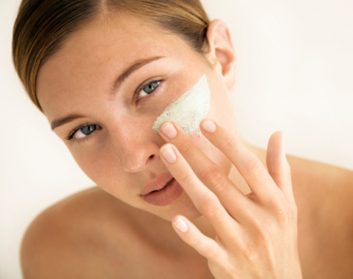
Masks are part of a good skin regimen
When I think of facials, I think of the vigilant skincare habits of Frenchwomen. I’ve yet to answer the doorbell with a pale green or blue mask on, which I’ve heard wouldn’t elicit a peep in that land of serious skin care. Nor could I see myself applying one while on a long-haul flight, as famed U.K. makeup artist Lisa Eldridge does (okay, the one she used on her airplane beauty video was somewhat clear in colour). But I do try to work one into my skincare routine-usually on a weekend, hiding in my bathroom.
“Using a mask is one of the steps of a good skin regimen,” says Karen Asquith, Toronto-based national trainer for G.M. Collin, a Montreal-made line of skincare products that’s sold in spas.
“A mask blankets the skin, helping the active ingredients penetrate,” Asquith says. “Depending on the type of mask, it can draw impurities from the skin and eliminate dead cells, or tighten and tone.”
Masks are applied to cleansed skin for 10 to 15 minutes, although the duration can be shorter or longer; some hydrating masks can also be used as an intensive overnight treatment.
They generally fall into the following categories:
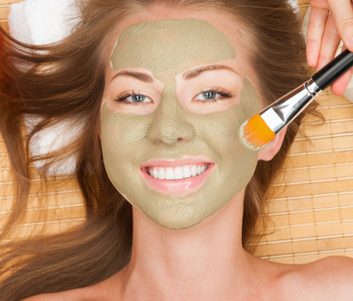
Clay masks
These use kaolin clay, a natural component in soil. Montagne Jeunesse (a natural skin and body-care brand sold around the world) uses kaolin from Cornwall, England, says Keith Rockhill, the company’s U.K.-based marketing director. In cosmetics, kaolin is known for its efficacy in absorbing oil, for drawing out impurities and dirt that can make pores look more noticeable, and for removing dead skin cells. These masks might be targeted to oily T-zones or acne-prone skin, and may contain acne-fighting ingredients such as salicylic acid.
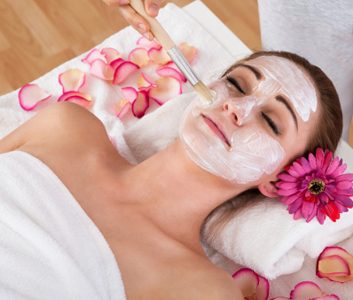
Hydrating masks
Like the pumpkin mask from Éminence, or the cooling cucumber mask from Freeman, these soothe, nourish and, as their name implies, super-moisturize. Éminence’s is a rinse-off, the most common type, while Freeman’s peels off, which can be fun-it really depends on personal preference.
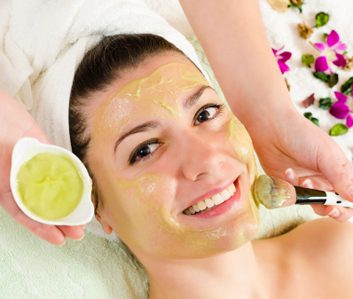
Firming and anti-aging masks
These deal with skin in need of a reboot. Dior Capture Totale One Essential mask, a melt-into-skin pink gel, bills itself as an “ultra-detox” that addresses wrinkles and loss of firmness.
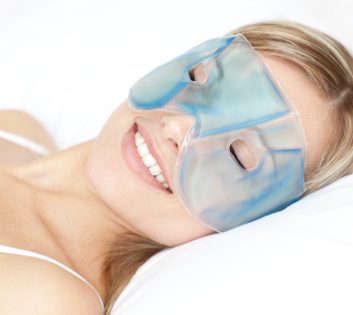
Tissue masks
With cutouts for eyes, nose and lips, these sheets are a hot trend in Asia right now. Montagne Jeunesse’s are made of bamboo. Garnier Skin Renew Dark Spot Treatment Mask is saturated with a hydrating serum, and has skin-brightening vitamin C. You stretch it to fit over your face and leave it on for 10 minutes. Although tissue masks have been around for a while, ones that address dark-spot correction are new.
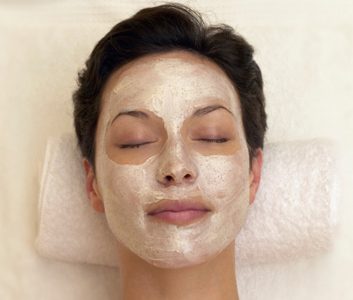
Sleeping masks
These are booming in Asia and are now growing worldwide. You apply them at night before you go to sleep. Vichy Aqualia Thermal Night Spa features hyaluronic acid, Vichy thermal spa water, aquabioryl (a hydration booster) and plant oils. “It’s for intense hydration,” says Amélie Fortier-Cyr, Montreal-based brand director at Vichy Canada. It’s applied at bedtime so the skin can absorb the benefits of the ingredients all night long. “Nighttime is when the skin is rested and regeneration is at its peak,” adds Fortier-Cyr, “so you wake up to skin that’s fresher, more hydrated.”
Whether you go the nocturnal, rinse-off or peel-off route, follow the instructions. Then sit back and enjoy a little bit of soothing magic.
Related:
• Find the right mask for you
• Staff tested: Treatment masks
• 5 reasons your skin is so dry
